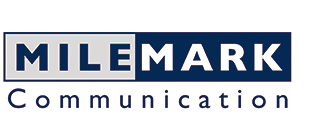
Sind Amerikaner unentschlossen, Deutsche zu starr?
Are Americans indecisive in business, as many Germans believe and claim? Are Germans too rigid, unable to be agile or align in business, as many Americans believe and claim? As it is with stereotypes, there are elements of truth in both statements, but neither one of them is absolutely true. This is just one of the many misunderstandings that continually come up because we seldom understand each other as well as we should. The truth of the matter is that Germans and Americans generally follow two different decision-making processes because the main desired outcome of one of our systems is SECURITY/EFFICIENCY, while the main desired outcome of the other system is RESPECT/ALIGNMENT.
The decision-making process followed in Germany typically relies on taking as much time as necessary to talk fully through an initiative or action. Each decision-maker reviews the initiative, gives input and, either signs off on it, or kills it. The same routine is repeated with every decision-maker, making it a very time-consuming process, one that ends with an irrevocable decision. Once a decision has made, it should not be revisited. But once the implementation begins, it can, at least theoretically, be done quickly and efficiently. The downside is that once a decision has been made, it is very hard to change or amend, even if new information comes to light or developments make a better outcome possible. Done is done.
The decision-making process followed by Americans, on the other hand, relies on a few stakeholders, (usually 5-7), talking about an initiative or action, and quickly deciding whether it looks promising, or not. If it does, they make a temporary decision, which allows them to try a few things and gather some feedback. Then, they meet again to review what they’ve learned from the trial, and to decide whether the initiative still seems promising. If it does, they make the next temporary decision, which allows them to take some more steps and learn some more. Every time new stakeholders become involved, they also have a right to be heard and to expect that their wishes be aligned to. The downside is that later decisions often revise or even undo earlier decisions and new, unexpected developments keep coming up. This means frequently that early planning was wasted time and very little is certain. Learning how to manage the decision-making processes is critical if we’re ever going to truly profit from the enormous, REAK potential offered by German-American business. Take our little quiz to find out if you know what you need to know to work successfully with American partners: https://lnkd.in/ex8fCUzt
Lernen Sie mehr in Daniel Donaheys D-US-(Online)Seminaren “Interkulturelles Training USA”:
Zu diesen und anderen interkulturellen Unterschieden und D-US-Problemstellungen bietet Daniel Donahey spezielle Seminare und Coachings für Firmen und Einzelpersonen, auch Online, an. Nehmen Sie bitte einfach Kontakt auf, oder Tel. 0911-377 47 33.
